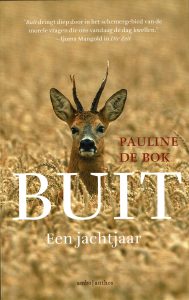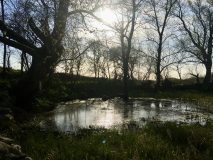
On hunting, nature, and living with the rhythm of the seasons
Prey is the account of Pauline de Bok’s hunting for wild boar, deer and fox in the German countryside. When she had success and killed an animal, she took her catch back to the barn, skinned it, cut it up and ate it. She describes in detail the whole process of the chase, from spotting the first spoor, to the lying in wait, killing, dragging back the kill and skinning it, and, finally, digesting it. ‘Lunch at last, I’m starving. I cut lumps of fat from its belly, and melt them in the pan to fry a couple of thin slices of liver. Smells even better than when fried in butter. Bread on the side, buttermilk, and that’s it.’
This book could be called a literary memoir, along the lines of Helen Macdonald’s H Is For Hawk, with its clarity, its perceptive analysis of the relationship between man and nature and its reflections on the end of life. It is also a peculiarly personal book in which the fascination, tension and direct experience of hunting is made tangible.
De Bok vividly describes the joy of the chase for the hunter, what they experience, their close knowledge of animals. The killing itself is a culmination of tension, fear and concentration; it is also the gruesome defeat of a wounded, wild animal in its death throes. De Bok doesn’t shy away from confrontation: what gives the hunter the right to inflict such an end on a living creature?
Prey shows how confrontational hunting can be: hunting and killing are outside most of our experience, and at odds with our protected, controlled world in which experience is now often artificial if not virtual, a world in which we enjoy eating meat without a care for the miserable existence most farmed animals endure, or their merciless industrial ending.
(Source: Nederlands Letterenfonds / Dutch Foundation for Literature)

.jpg)


